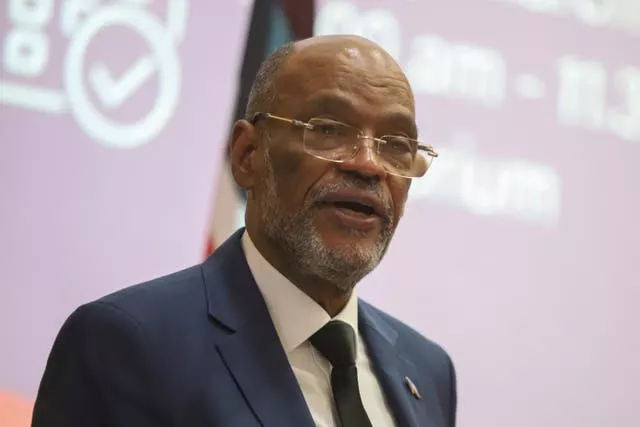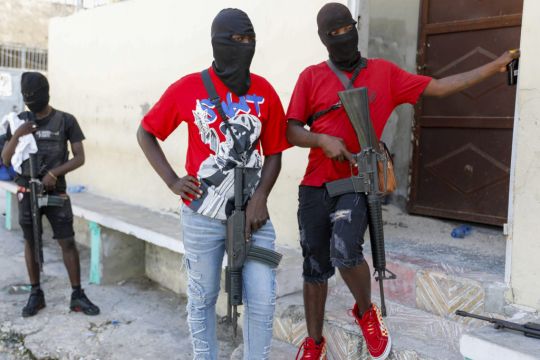Haitian politicians are bidding to form a coalition that could lead the country out of the gang violence that has closed the main airport and prevented embattled prime minister Ariel Henry from returning home.
Haiti remained largely paralysed on Wednesday, with schools and businesses still closed amid heavy gunfire blamed on the gangs that control an estimated 80 per cent of the capital, Port-au-Prince.
The country’s two biggest prisons were raided, resulting in the release of more than 4,000 inmates over the weekend.
Mr Henry faces increasing pressure to resign, which would likely trigger a US-supported transition to a new government.

One new political alliance involves former rebel leader Guy Philippe and ex-presidential candidate and senator Moise Jean Charles, who told Radio Caraibes on Wednesday that they signed a deal to form a three-person council to lead Haiti.
Mr Philippe, a key figure in the 2004 rebellion that ousted former president Jean-Bertrand Aristide, returned to Haiti in November and has been calling for Mr Henry’s resignation.
He spent several years in prison in the US after pleading guilty to a money laundering charge.
Meanwhile, the US ambassador to the United Nations was asked on Wednesday whether the United States asked Mr Henry to step down.
Linda Thomas-Greenfield replied that the US has asked Mr Henry to “move forward on a political process that will lead to the establishment of a presidential transitional council that will lead to elections”.
American officials believe it is urgent for Mr Henry to start “the process of bringing normalcy back to the people of Haiti”, she said.

The prime minister has not made any public comments since gangs began attacking critical infrastructure late last week while he was in Kenya pushing for the UN-backed deployment of a police force from the East African country to help fight the surge in violence in the troubled Caribbean nation.
Before flying to Kenya, Mr Henry was in the South American country of Guyana for a summit held by a regional trade bloc known as Caricom, where Haiti was high on the agenda.
Meanwhile, a Caribbean official told The Associated Press on Wednesday that leaders of Caricom spoke with Mr Henry late on Tuesday and presented several alternatives to end Haiti’s deepening crisis, including his resignation, which he refused.
Mr Henry landed Tuesday in Puerto Rico after he was not allowed to land in the Dominican Republic, after officials closed the airspace around Haiti.
Hector Porcella, director of the Dominican Institute of Civil Aviation, told reporters the plane did not have a required flight plan.

Dickon Mitchell, prime minister of the eastern Caribbean island of Grenada, told the AP that regional leaders spoke late on Tuesday with Mr Henry, who did not indicate anything except “that he is trying to get back into Haiti”.
Henry was appointed prime minister with the backing of the international community shortly after the July 2021 assassination of the country's president Jovenel Moise.
As he tried to return to Haiti on Wednesday, heavy gunfire echoed throughout Port-au-Prince as Haitians feared additional attacks led by powerful gang leaders.







